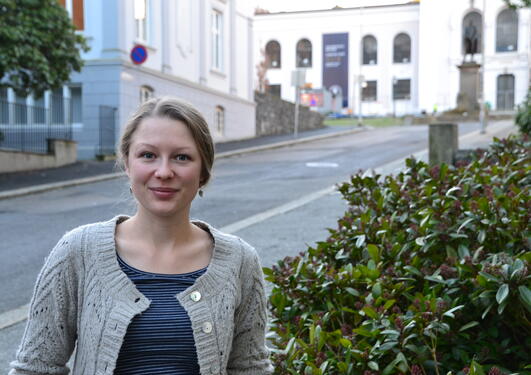Breaking Bad at Sampol
A new research project headed by Prof. Lise Rakner, will research whether dictators are abusing formal institutions in a Backlash Against Democracy (BAD) in Africa, or whether formal institutions increasingly restrain the discretionary power of more-or-less democratic politicians.

Hovedinnhold
Prof. Lise Rakner, has been passionate about setting up the new research project, which both correlates to her research interests, but which is also of real world importance:
- We are now entering a period where liberal democracy is challenged across the world. What is interesting is that democracy is challenged “from within”, or through democratically elected leaders who use populist appeals to weaken vital institutions of democratic accountability. What may explain the democratic backlashes witnessed? Who are the actors and forces driving the backlash, and what are the responses? These questions are in my opinion some of the most critical questions of our time and I am incredibly excited about this research.
Besides being the project’s leader, Rakner will do her own research related to opposition politics and political party developments, as well as being responsible for two of the country case studies.
One of the most intriguing characteristics of the backlash against democracy, is the dual development. Most African countries today have multiparty elections. They have clear divisions between the electoral, legislative, executive and legal institutions. Power is not concentrated in the hands of one single actor. It all looks nice on paper. In real life, things often appear different. Multiparty elections and legislation are often used as tools by the ruling elites in a backlash against democracy. From restrictive laws smothering civil society organisations in Ethiopia to closing down media outlets in Tanzania, this development takes place in both seemingly democratic and outright authoritarian regimes. At the same time, both the Supreme Court’s decision to reverse the election in Kenya and the military’s endeavours to carry out a constitutionally correct coup in Zimbabwe illustrate a trend that formal institutions bind behaviour.
Two new positions are connected to the project. Sampol's new PhD Candidate, Lisa-Marie Selvik, will research how civil society groups operate in illiberal regimes. Svein-Erik Helle will in his post-doc position focus on Arican autocracies. The link between theory and practice was important to Helle as well:
- Breaking BAD aims not just to understand African governance but to improve it, crafting and communicating proposals to prevent democratic decay and the retrenchment of authoritarianism. I really enjoy that the project is policy oriented.
Project leader Rakner has ambitious goals for the project;
- This project brings together an exceedingly fun and inspiring group of people, and first of all, I look forward to learning from- and with – this amazing group of people. Further, to borrow the language of Donald Trump- we will write beautiful articles- so-so beautiful. No, seriously, the research group has an ambitious dissemination plan that includes a joint book, and a series of articles. In addition, we will be contributing to more policy oriented debates and we hope to engage students through MA and PhD courses linked to the project.
Breaking Bad is funded by the Research Council of Norway (Frihumsam) for 4 years, between 2017 and 2021. Several African country case studies will be conducted; in Ghana, Kenya, Malawi, Tanzania, Uganda, Zambia and Zimbabwe. The project will use a combination of qualitative and quantitative methods to develop robust theories and analysis based on both within- and between-country comparisons. This will include studies of the historical political development, combined with new data on elite behavior in the same countries today, to achieve a better understanding of the composition, causes and consequences of the backlash against democracy.

